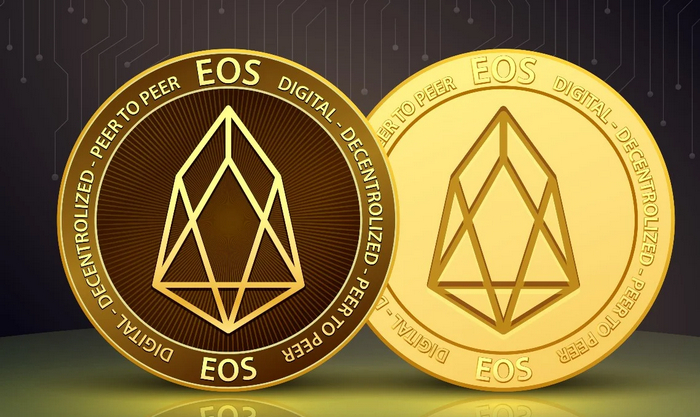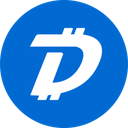-
 Bitcoin
Bitcoin $83,055.9927
-0.47% -
 Ethereum
Ethereum $1,811.3411
-0.84% -
 Tether USDt
Tether USDt $0.9996
-0.02% -
 XRP
XRP $2.0568
-0.29% -
 BNB
BNB $592.3786
-1.07% -
 USDC
USDC $1.0000
0.02% -
 Solana
Solana $115.8401
-3.10% -
 Dogecoin
Dogecoin $0.1622
-2.36% -
 Cardano
Cardano $0.6499
-0.49% -
 TRON
TRON $0.2387
1.14% -
 Toncoin
Toncoin $3.5313
-7.91% -
 UNUS SED LEO
UNUS SED LEO $9.4387
0.79% -
 Chainlink
Chainlink $12.8160
-2.83% -
 Stellar
Stellar $0.2597
-0.92% -
 Avalanche
Avalanche $18.1550
-1.86% -
 Sui
Sui $2.2297
-6.00% -
 Shiba Inu
Shiba Inu $0.0...01216
-1.10% -
 Hedera
Hedera $0.1628
-0.73% -
 Litecoin
Litecoin $83.3180
0.23% -
 Polkadot
Polkadot $4.0186
-0.86% -
 MANTRA
MANTRA $6.3865
0.69% -
 Bitcoin Cash
Bitcoin Cash $302.0680
0.90% -
 Bitget Token
Bitget Token $4.5033
-1.06% -
 Dai
Dai $1.0000
0.01% -
 Ethena USDe
Ethena USDe $0.9995
-0.05% -
 Hyperliquid
Hyperliquid $11.9355
-4.35% -
 Monero
Monero $213.8810
-0.87% -
 Pi
Pi $0.5489
-17.54% -
 Uniswap
Uniswap $5.8524
-1.97% -
 Aptos
Aptos $5.0205
-3.57%
What are EOS coins? What can EOS coins do? How to store EOS coins?
EOS is a high-throughput, low-latency blockchain platform that enables the processing of thousands of transactions per second through its unique Delegated Proof of Stake (DPoS) consensus mechanism.
Oct 23, 2024 at 12:30 pm

What is EOS Coin?
EOS is a decentralized blockchain platform designed to support high-throughput, low-latency applications. It was developed by Block.one, a company founded by Dan Larimer, the co-founder of the Steem blockchain. EOS employs a unique consensus mechanism called Delegated Proof of Stake (DPoS) to achieve its high performance, allowing for the processing of thousands of transactions per second.
Features of EOS Coin:
- High Transaction Throughput: Capable of processing over 10,000 transactions per second.
- Low Latency: Transactions confirm very quickly, typically within seconds.
- Scalability: Designed to handle large volumes of traffic without compromising performance.
- Smart Contracts: Supports the creation of custom smart contracts, enabling developers to build decentralized applications.
- Governance: Allows token holders to participate in network governance through block producer elections.
Uses of EOS Coin:
EOS coins are used for various purposes within the EOS ecosystem:
- Network Fees: Used to pay for transactions and smart contract execution.
- Block Production: Node operators (block producers) earn EOS coins for maintaining the network.
- Governance: EOS holders can vote on key decisions related to the network's operation.
- Staking: Staking EOS coins allows holders to earn rewards for supporting the network.
How to Store EOS Coins:
EOS coins can be stored in various wallet options:
- Official EOS Wallet: The official wallet developed by Block.one, providing security and direct access to the EOS network.
- Hardware Wallets: Ledger and Trezor hardware wallets offer offline storage for secure asset custody.
- Software Wallets: Desktop and mobile wallets, such as Exodus or Atomic Wallet, allow for convenient management of EOS coins.
- Exchange Wallets: Some cryptocurrency exchanges, like Binance or Coinbase, provide wallet services for storing EOS coins.
Conclusion:
EOS is an innovative blockchain platform that offers high performance, scalability, and governance capabilities. EOS coins are used to facilitate transactions, pay network fees, and empower token holders to participate in the network's governance. By understanding the features, uses, and storage options of EOS coins, users can effectively participate in the EOS ecosystem and leverage its benefits.
Disclaimer:info@kdj.com
The information provided is not trading advice. kdj.com does not assume any responsibility for any investments made based on the information provided in this article. Cryptocurrencies are highly volatile and it is highly recommended that you invest with caution after thorough research!
If you believe that the content used on this website infringes your copyright, please contact us immediately (info@kdj.com) and we will delete it promptly.
- Gold Dips from Record High as Market Turmoil Sparks Profit-Taking
- 2025-04-04 08:35:12
- Factors such as whale accumulation, bullish technical indicators, and market sentiment have contributed to this optimistic outlook.
- 2025-04-04 08:35:12
- With the crypto market entering a new growth cycle in 2025
- 2025-04-04 08:30:11
- EOS Price Defies the Market Crash: +46% in a Week!
- 2025-04-04 08:30:11
- BlockDAG (BDAG) Breaks Records With 2,380% Presale Price Jump, Outpacing Dogecoin (DOGE) and Kaspa (KAS)
- 2025-04-04 08:25:12
- Economic uncertainty and a major crypto exchange hack pushed down the total value locked in DeFi protocols to $156 billion in the first quarter of 2025
- 2025-04-04 08:25:12
Related knowledge

What is Ethereum’s Slashing mechanism and how to punish malicious behavior?
Feb 20,2025 at 03:08am
Key PointsOverview of slashingDifferent types of slashing in EthereumIncentives and consequences of slashingIdentifying and reporting slashed validatorsOngoing discussions and potential improvementsEthereum's Slashing Mechanism: Punishing Malicious BehaviorEthereum's slashing mechanism is an essential tool for ensuring network security and punishing mal...

What is the verifier node of Ethereum and how to become a verifier?
Feb 19,2025 at 06:00pm
The Verifier Node of Ethereum: A Comprehensive GuideKey Points:What is a Verifier Node?How to Become a Verifier NodeResponsibilities and Rewards of a Verifier NodeMinimum Requirements for Becoming a Verifier NodePotential Difficulties in Running a Verifier Node1. What is a Verifier Node?A Verifier Node is an independent entity on the Ethereum network th...

What is Ethereum’s staking, and how to participate and earn money?
Feb 19,2025 at 04:37pm
Key Points:Understanding Ethereum's Staking MechanismSteps to Participate in StakingBenefits and Rewards of StakingSecurity and Risk ConsiderationsTechnical Requirements and Hardware OptionsPotential Challenges and Troubleshooting TipsFAQs on Ethereum StakingWhat is Ethereum's Staking?Proof-of-Stake (PoS) is a consensus mechanism used in blockchain netw...

What is Ethereum’s DAO (Decentralized Autonomous Organization) and how does it work?
Feb 20,2025 at 03:12am
Key PointsDefinition and Structure of a DAOGovernance and Decision-Making in DAOsBenefits and Use Cases of DAOsChallenges and Limitations of DAOsWhat is Ethereum's DAO (Decentralized Autonomous Organization) and How Does It Work?Definition and Structure of a DAOA Decentralized Autonomous Organization (DAO) is an innovative governance and management fram...

What is Ethereum's multi-signature wallet and how to improve security?
Feb 20,2025 at 02:18pm
Key Points:Understanding the Concept of a Multi-Signature WalletBenefits and Drawbacks of Multisig WalletsRequirements for Setting Up a Multisig WalletStep-by-Step Guide to Generating a Multisig WalletImplementing Strategies for Enhanced Security1. Understanding the Concept of a Multi-Signature WalletA multi-signature (multisig) wallet in the Ethereum e...

What is Ethereum's oracle and how to provide data for smart contracts?
Feb 21,2025 at 01:30am
Key Points:Understanding the concept of oracles in EthereumExploring different types of oraclesDetailed guide on how to provide data for smart contractsAddressing potential challenges and considerationsWhat is Ethereum's Oracle?Oracles are crucial components in the Ethereum ecosystem, enabling smart contracts to access real-world data and off-chain even...

What is Ethereum’s Slashing mechanism and how to punish malicious behavior?
Feb 20,2025 at 03:08am
Key PointsOverview of slashingDifferent types of slashing in EthereumIncentives and consequences of slashingIdentifying and reporting slashed validatorsOngoing discussions and potential improvementsEthereum's Slashing Mechanism: Punishing Malicious BehaviorEthereum's slashing mechanism is an essential tool for ensuring network security and punishing mal...

What is the verifier node of Ethereum and how to become a verifier?
Feb 19,2025 at 06:00pm
The Verifier Node of Ethereum: A Comprehensive GuideKey Points:What is a Verifier Node?How to Become a Verifier NodeResponsibilities and Rewards of a Verifier NodeMinimum Requirements for Becoming a Verifier NodePotential Difficulties in Running a Verifier Node1. What is a Verifier Node?A Verifier Node is an independent entity on the Ethereum network th...

What is Ethereum’s staking, and how to participate and earn money?
Feb 19,2025 at 04:37pm
Key Points:Understanding Ethereum's Staking MechanismSteps to Participate in StakingBenefits and Rewards of StakingSecurity and Risk ConsiderationsTechnical Requirements and Hardware OptionsPotential Challenges and Troubleshooting TipsFAQs on Ethereum StakingWhat is Ethereum's Staking?Proof-of-Stake (PoS) is a consensus mechanism used in blockchain netw...

What is Ethereum’s DAO (Decentralized Autonomous Organization) and how does it work?
Feb 20,2025 at 03:12am
Key PointsDefinition and Structure of a DAOGovernance and Decision-Making in DAOsBenefits and Use Cases of DAOsChallenges and Limitations of DAOsWhat is Ethereum's DAO (Decentralized Autonomous Organization) and How Does It Work?Definition and Structure of a DAOA Decentralized Autonomous Organization (DAO) is an innovative governance and management fram...

What is Ethereum's multi-signature wallet and how to improve security?
Feb 20,2025 at 02:18pm
Key Points:Understanding the Concept of a Multi-Signature WalletBenefits and Drawbacks of Multisig WalletsRequirements for Setting Up a Multisig WalletStep-by-Step Guide to Generating a Multisig WalletImplementing Strategies for Enhanced Security1. Understanding the Concept of a Multi-Signature WalletA multi-signature (multisig) wallet in the Ethereum e...

What is Ethereum's oracle and how to provide data for smart contracts?
Feb 21,2025 at 01:30am
Key Points:Understanding the concept of oracles in EthereumExploring different types of oraclesDetailed guide on how to provide data for smart contractsAddressing potential challenges and considerationsWhat is Ethereum's Oracle?Oracles are crucial components in the Ethereum ecosystem, enabling smart contracts to access real-world data and off-chain even...
See all articles






















































































